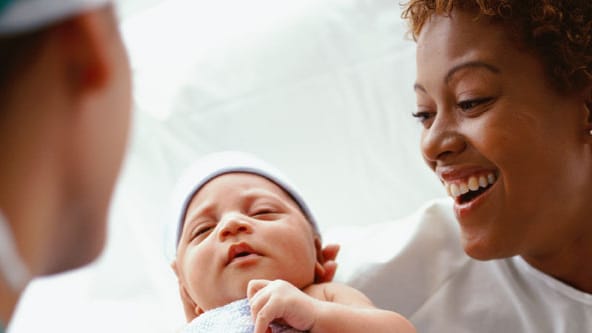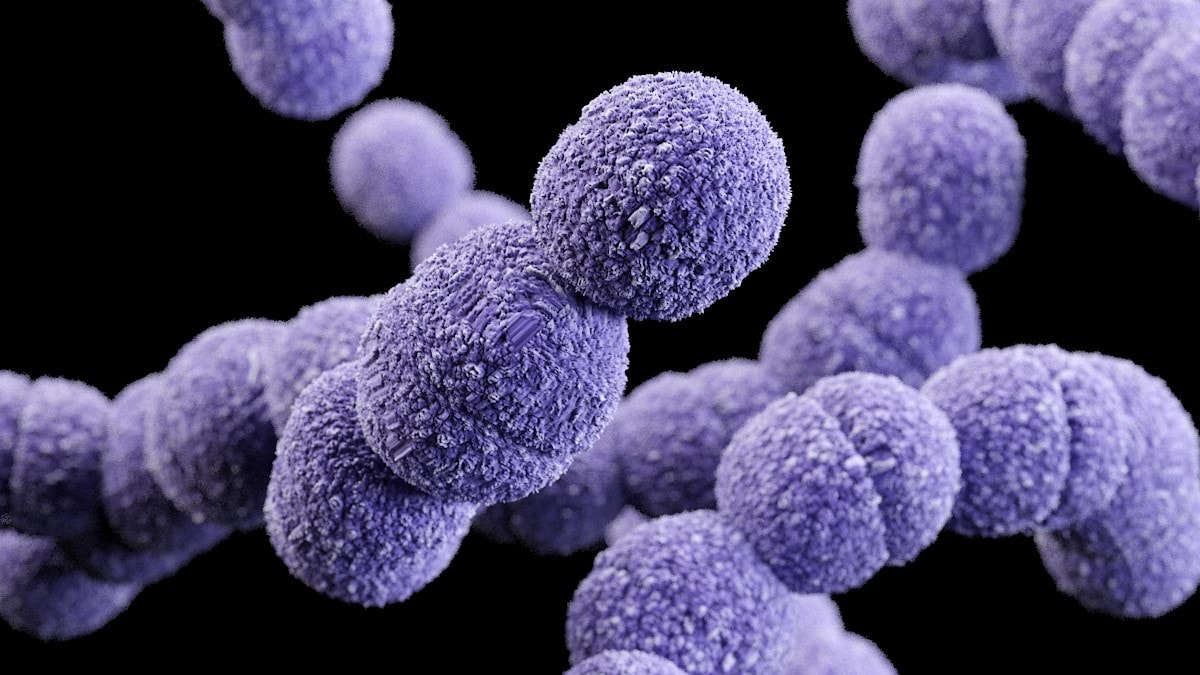Key points
- Group B Streptococcus (group B strep, GBS) bacteria cause GBS disease.
- GBS disease includes many types of infections—some can be life threatening.
- Anyone can get GBS disease, but it's most common in newborns.
- Pregnant women should get tested for GBS bacteria and get antibiotics during labor, if needed.

What it is
GBS disease is a name for any infection caused by GBS bacteria. These bacteria that commonly live in people's gastrointestinal and genital tracts.
Gastrointestinal tract: The part of the body that digests food and includes the stomach and intestines
Genital tract: The part of the body involved in reproduction and includes the vagina in women
Most of the time, the bacteria aren't harmful and don't make people feel sick (have any symptoms).

Types
GBS bacteria can cause many types of infections. Some of these infections can be life threatening.
Infections include:
- Bacteremia (bloodstream infection)
- Sepsis (the body's extreme response to an infection)
- Bone and joint infections
- Urinary tract (bladder) infections
- Meningitis (infection of the lining of the brain and spinal cord)
- Pneumonia (lung infection)
- Skin and soft tissue infections
Most common infections
Newborns: GBS bacteria most commonly cause bacteremia, sepsis, pneumonia, and meningitis.
Adults: Bloodstream infections, pneumonia, and skin and bone infections are the most common GBS infections among non-pregnant adults. It's very uncommon for GBS bacteria to cause meningitis in adults.
Symptoms
Symptoms and complications of GBS disease depend on the part of the body that's infected.
Who is at risk
Anyone can get GBS disease, but some people are at greater risk than others. Being a certain age or having certain medical conditions can put you at increased risk for GBS disease.
How it spreads
GBS bacteria come and go naturally in people’s bodies. How people spread GBS bacteria to others is generally unknown.
From mothers to babies
Pregnant women can pass the bacteria to their babies during delivery. Most babies who get GBS disease in the first week of life are exposed to the bacteria this way. It can be hard to figure out how babies who develop GBS disease later got the bacteria. The bacteria may have come from the mother during birth or from another source.
Ways the bacteria don't spread
Prevention
There are currently no vaccines to prevent GBS disease, but they are under development. Unfortunately, experts haven't identified effective ways to prevent GBS disease in people older than one week.
In newborns
Healthcare providers can take steps to help prevent GBS disease during the first week of a newborn's life.
Screening and diagnosis
Screening
All pregnant women should get screened for GBS bacteria.
Diagnosing GBS disease
After seeing someone who is sick, healthcare providers may take samples depending on the type of infection they suspect:
- Blood
- Spinal fluid
- Urine
Healthcare providers may also order a chest x-ray to help determine if someone has GBS disease.
Treatment and recovery
Doctors usually treat GBS disease with antibiotics. Sometimes people with soft tissue and bone infections may need additional treatment, such as surgery. Treatment will depend on the type of infection caused by the GBS bacteria.
It's important to start treatment as soon as possible.
